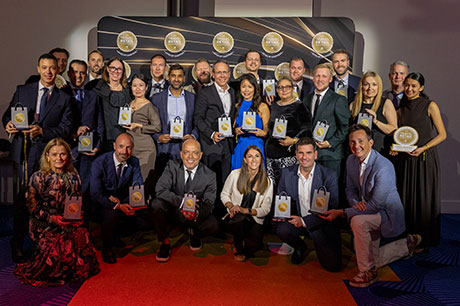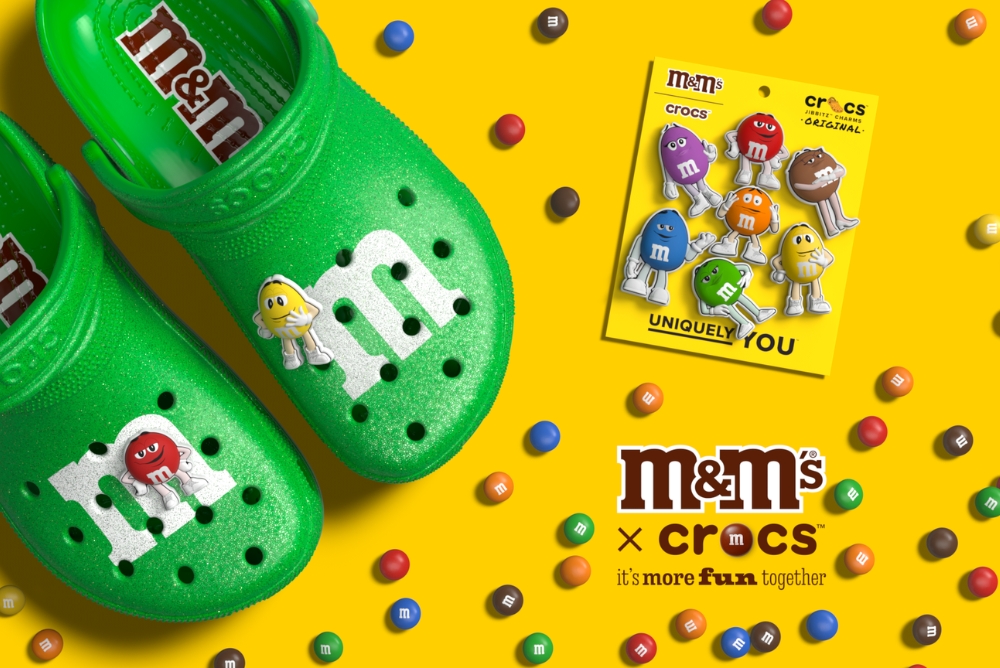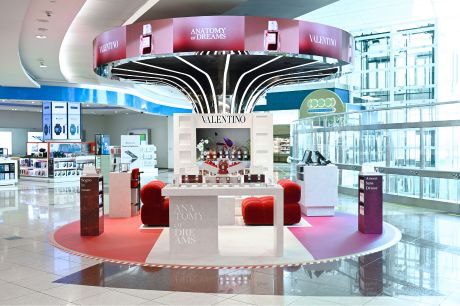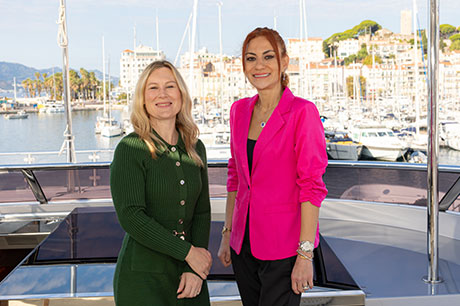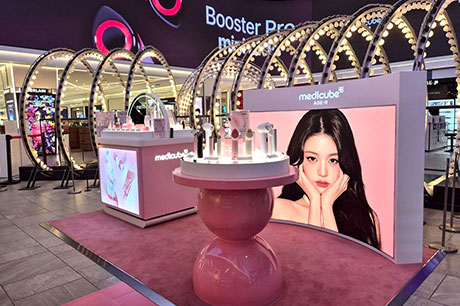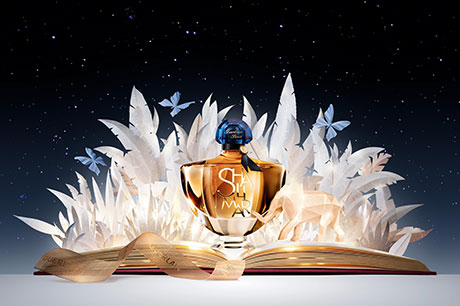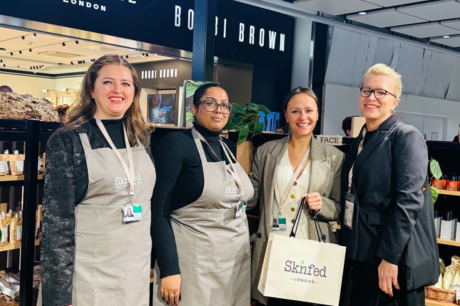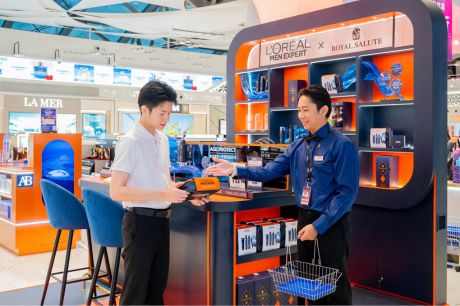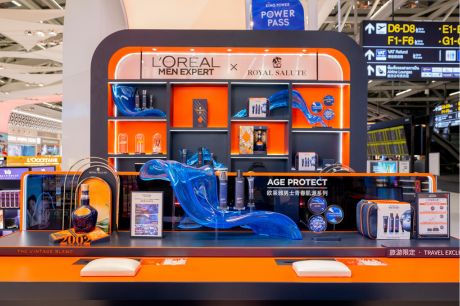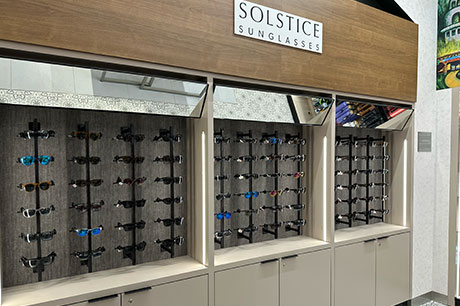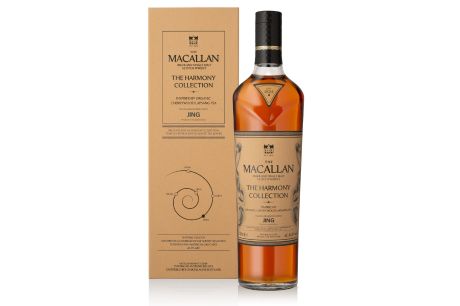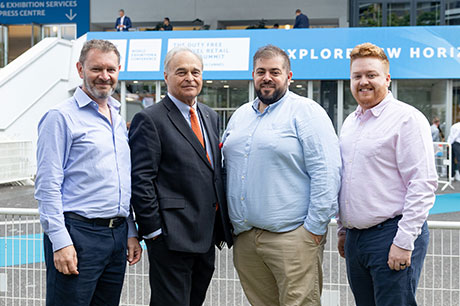Domaines Paul Mas explores untapped potential for Languedoc wines in TR
By Faye Bartle |

Left: The Astelia TREX range. Right: Jean-Claude Mas with TRBusiness’ Faye Bartle.
ON LOCATION/EXCLUSIVE: With a TREX range, a pipeline of innovations such as Rosorange and the ability to bring bespoke bottle art to market in just three months, Domaines Paul Mas is poised to grow its travel retail business with Asia a key target.
TRBusiness embarked on a trade media exclusive visit to the Languedoc wine producer to meet with Owner Jean-Claude Mas and discover more about the company’s plans to leverage the appeal of its ‘old world wines with new world attitude’ to tap into opportunities in the channel.
“I believe the way travel retail has become now, when you see the big terminals, is like a hypermarket so we have to consider it as a strategic channel to be in, as much as online, direct and cellar door – all those are ‘new age’ distribution channels that we really have to do properly,” said Jean-Claude Mas, who established Domaines Paul Mas in 2000, effectively spearheading the family’s transition from vineyard owners, since 1892, to wine producers.
By boldly snapping up land and vineyards in the region – “they weren’t as expensive as you may think,” he says – the company now commands more than 940 hectares of vines on its own estates in the Languedoc-Roussillon region (up from 75 hectares when Jean-Claude Mas first took the helm) – 30% of which are organic.

The state-of-the-art Clos Astelia winery is inspired by nature.
Fifty different grape varieties are planted across a variety of terroirs, each with its own microclimate.
Grapes are assigned to the most compatible growing conditions – “all are giving extremely good results, if you know where to plant them,” he reveals. There’s also a dedicated ‘test bed’ for new varieties helping to future-proof the harvest.
With 14 wineries (the two main ones being Astelia and Nicole) and its own bottling facility with the capacity to produce 26 million bottles a year under 17 different labels, the company has reached its optimum volume output for the foreseeable future and is now focusing on maximising the performance of its offering.

Left: Jean-Claude Mas takes a pause in the community church situated beside the historic family estate in Pézenas. Right: Signature wines of Domaines Paul Mas.
“We have full control from the vineyards to the bottle so there is a level where it is not better to go higher, but to master what you do and to get more value out of it – that is where I see the next 20 years going,” he said.
The wine is available in 80 countries with France accounting for 20-25% of its business and travel retail taking a 2% slice (mostly inflight, including with Qatar Airways which serves selected wines to Business Class passengers).
Now, the company is focusing on bringing its distinctive brand of rural luxury to airport shops.

Jean-Claude Mas surveys the vineyard situated next to the Musée Parc Des Dinosaures.
“Wine in travel retail has strong potential. For the moment it is controlled by a few brands and I think the access cost is very high,” said Jean-Claude Mas.
“There are few stores in terminals that have the sense of being wine stores, but I think that will develop. It’s a bit like food: when I see olive oil getting corners, I think there is more potential.
“Travel retail has potential for us as the space for Languedoc wines is practically zero – there is very little space. You see Bordeaux, Chablis, Barolo, Chateauneuf Du Pape and you see a bit of Languedoc, but it’s very minor.”
Readers may be most familiar with the company’s Arrogant Frog label, which Jean-Claude Mas says is its most successful, especially in Australia, due to its tongue-in-cheek attitude.
Communicating the origins of the wines, and how this impacts their character, is key to helping consumers to better understand and appreciate the quality and the breadth of the entire Domaines Paul Mas portfolio.

Left: Sampling a vibrant rosé in a specially designed bottle featuring geometric shapes. Right: Jean-Claude Mas at the tasting table, which he visits daily.
The eponymous Jean Claude Mas range, launched in 2000, is designed to do just this, by bringing a sense of place and heritage to the fore.
The four-strong collection of fine wines represent the diversity of terroirs within the same appellation and are described as a fusion of traditional winemaking and the modern approach to wine championed by Jean-Claude Mas.
Additionally, there’s the company’s signature wines – Astelia Le Grand Blanc, Astelia Le Grand Vin, Silènus Grès de Montpellier, and Château Lauriga Côtes du Roussillon – which may also make their way into the channel at some point in the future due to their prominence in the portfolio and their higher price points (EUR40-50).
This is firmly in line with the company’s strategy to focus on exclusives, limited editions and other novelties like Rosorange (a cross between a rosé and an orange wine), that will deliver a healthier profit margin.
“In travel retail, space costs a lot of money – the turnover and profit per square centimetre is looking to be the highest possible and that is probably one of our challenges,” said Jean-Claude Mas.

Les Domaines Paul Mas unveiled its first ever travel retail exclusive wine range – Astelia – at the TFWA Asia Pacific Exhibition & Conference in Singapore.
Its first travel retail exclusive (TREX) wine range – Astelia – debuted at the Tax Free World Association (TFWA) Asia Pacific Exhibition & Conference in Singapore in May.
It comprises three wines: Astelia Grangette 111, Chardonnay; Astelia Tannes 122, Cabernet Sauvignon; and Astelia Chalamat 178, Syrah Grenache, with each bottle highlighting the unique characteristics of the vineyard by featuring a geological map of its plot, with the numbers 111, 122, and 178 representing the altitude of each vineyard plot.
These vines are planted within a radius of 2km, emphasising the paradoxical elements of a diverse yet harmonious terroir in the region.
Only 12,000 of each of the TREX bottles have so far been produced.

Left: A hand-painted Daum crystal bottle featuring artwork by CHAP. Right: Jean-Claude Mas is the driving force behind the vision to grow the brand in travel retail.
Launched alongside was The Masterpiece collaboration with artist Christophe Heymann (known as ‘CHAP’), featuring 30 unique, hand-painted Daum crystal bottles.
Limited-Edition replicas mean more customers can collect and enjoy the designs at a lower price point – and this is where Jean-Claude Mas sees potential for introducing retailer exclusive designs in the channel. ‘Sense of place’ sleeves are also an option.
The recently released Clos Martinolles Crémant De Limoux Extrême may be another potential TREX according to Jean-Claude Mas, who add that it’s possible that the wine could be sold alongside the company’s honey and olive oil in the future to enhance the rural luxury message.
A novel option that Jean-Claude Mas is mulling over at the moment is a travel retail exclusive range from a vineyard in Pézenas, which is situated on land where fossils and remains of dinosaur eggs have been discovered.

Jean-Claude Mas said the vineyard situated next to the Musée Parc Des Dinosaures could inspire another TREX range.
The pre-historic links of the area are highlighted at the neighbouring Musée Parc Des Dinosaures (the giant model dinosaur presiding over the landscape means you can’t miss it). It’s an exciting story to tell and would be especially apt for a new TREX range (pun intended).
“This is a young vineyard – just five years old,” he said, as we traverse the four-hectare vineyard, tasting the viognier grapes to see if they are ready to harvest. “It’s a grape that goes well with fusion food – very versatile – which is why I think we are going to have a great success.
As for this year’s harvest: “It’s not ready yet,” he asserts. “We will have to compromise between sugar level, acidity and yield – the more you wait the more yield you lose, the more acidity you lose, the more sugar you get. For me, if the aromatic maturity is fine, I go for it.”

The barrels are made of French and American oak for lending a toasted spicy character to the wines. The barrels are used for up to five years in total.
A fan of short ageing, he rests the wine in barrels made of French and American oak that lend a toasted spicy character (around 4-6 months for whites and 6-8 for reds).
It’s easy to understand how Claude Paul Mas has brought so much change to the family business – he is fearless in the pursuit of his vision (as I discovered as his passenger hurtling through the vineyards in a buggy at 60mph).
In terms of the next steps, he is smart to look to Asia, where the company has partnered with CoLab as the distributing partner for the Astelia TREX range.
“I have a good feel for Asia. I think it is the most open market to innovation and probably the one with the least competition [for wines],” he explained. “For the moment, we are waiting for things to happen but we are looking at the big airports for travel retail, such as Bangkok, Hong Kong, Japan (Narita), China, Singapore, and Kuala Lumpur.”

“I have always had a palette for tasting, for blending – that is my strength. I’m always learning.” Jean-Claude Mas.
On the TREX Astelia collection, Phil Sancto, General Manager – APAC at CoLab said: “The range caters to the increasing demand for premium French wines in the region, where discerning wine consumers will appreciate the blend of tradition and innovation that Astelia embodies.”
Sleek furniture and display concepts have been created especially for travel retail, which spotlight the product while helping to tell the story of wines from Languedoc and the different sub-regions.
“In three- to five-years’ time, the plan is for the three wines that are travel retail exclusives to be in 10 airports to reach a volume of sales of about 15-20,000 bottles per SKU – also to get some traction from the unique Daum crystal art bottle and to start to create a buzz about that,” said Jean-Claude Mas.
“There has been a lot of interest from retailers following TFWA Singapore but listings are still to be confirmed.
“The wine is great. The concept is great. Now it’s a matter of making it to the public.”
READ MORE: Les Domaines Paul Mas launches Astelia travel retail exclusive range
READ MORE: TFWA AP: Singapore-based CoLab APAC to display expansion plans
Winners revealed: Global Travel Retail Awards 2025
TRBusiness is thrilled to reveal the winners of the 2025 Global Travel Retail Awards, which...
M&M’S and Crocs unveil limited-edition collection fusing fashion and fun
Mars Wrigley International Travel Retail is debuting the first-ever M&M’S collaboration...
Valentino Beauty debuts Anatomy of Dreams collection at Dubai Duty Free
L’Oréal Travel Retail and Valentino Beauty have introduced the Anatomy of Dreams fragrance...

In the Magazine
TRBusiness Magazine is free to access. Read the latest issue now.

 Trbusiness. The travel retail Trbusiness. The magazine for global retail and duty free professionals.
Trbusiness. The travel retail Trbusiness. The magazine for global retail and duty free professionals.